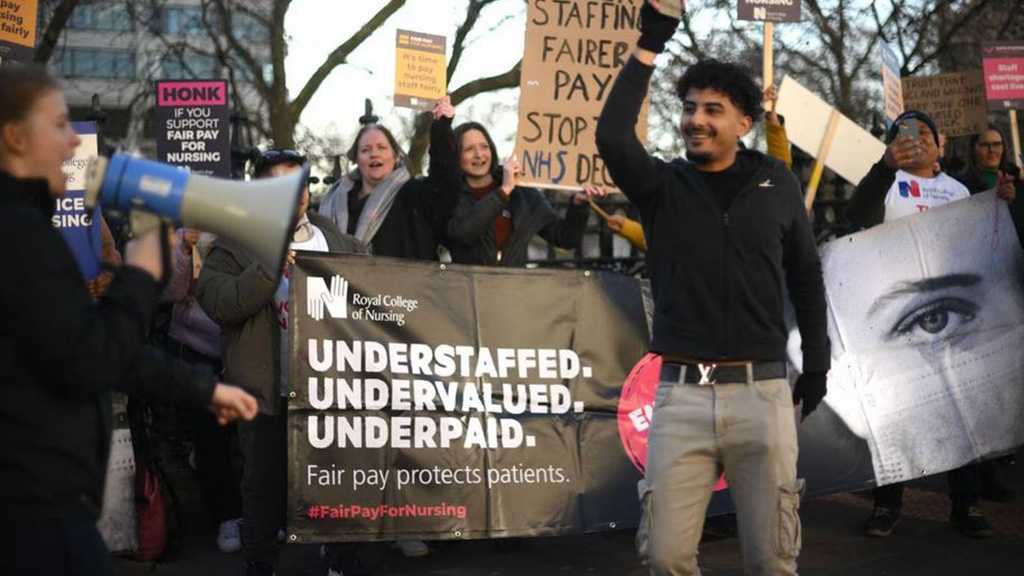Inflation Rips into UK Wage Increases

By Staff, Agencies
Growth in regular pay, which excludes bonuses, was 6.7 per cent in the final quarter of last year, according to the UK's Office for National Statistics.
Total pay, including bonuses, rose by 5.9 per cent in the fourth quarter of 2022.
But inflation took its toll. In real terms – adjusted for inflation – total pay and regular pay fell by 3.1 per cent 2.5 per cent respectively in the quarter, compared to the same period in 2021.
“It means Britain’s workers are seeing their disposable incomes hammered by higher prices – with the jump in wages unlikely to ease in the short term as those feeling the pinch ask for pay increases to give their purchasing power a fighting chance against inflation,” said Alice Haine, personal finance analyst at Bestinvest.
UK Chancellor Jeremy Hunt said: “The best thing we can do to make people's wages go further is stick to our plan to halve inflation this year.”
Reacting to the wage figures, opposition Liberal Democrat Treasury spokeswoman Sarah Olney said: “This Conservative government has hammered families with soaring mortgages, rising energy bills and huge unfair tax hikes.”
“Hard-working people are having their pay squeezed thanks to the incompetence of Rishi Sunak and Jeremy Hunt,” she added.
Rachel Reeves, opposition Labor’s shadow chancellor, said the UK's economy was “stuck in the slow lane”.
“Britain has huge potential – but 13 years of the Tories has left real wages down, families worse off, and our economy lagging behind on the global stage.”
“The government needs to stop sitting back and following this path of managed decline,” she said.
Meanwhile, the rate of UK unemployment was 3.7 per cent in the three months to December, an increase of 0.1 per cent on the quarter, the ONS said. The increase was driven by a rise in the number of people who have been out of work for up to a year. However, there was a fall in the number of people who had been unemployed for more than a year.
At the same time, the employment rate in the October to December quarter was estimated at 75.6 per cent, 0.2 per cent higher than the previous three-month period. The increase in employment was driven by part-time workers, the ONS said.
Between November last year and January this year, the estimated number of vacancies fell by 76,000, compared with the previous quarter, to 1,134,000. It was the seventh consecutive quarterly fall since May to July 2022.
The ONS said the fall in the number of vacancies reflects “uncertainty across industries, as survey respondents continue to cite economic pressures as a factor in holding back on recruitment.”
“Though still at historically very high levels, job vacancies have dropped again, with a particularly sharp fall from the smallest employers,” said Darren Morgan, director of economic statistics at the ONS.
Hunt said: “In tough times, unemployment remaining close to record lows is an encouraging sign of resilience in our labor market.”
Attention will turn to both the latest inflation figures due out on Wednesday and next month's Budget to be delivered by Hunt.
“The upcoming Budget is the opportune moment for the government to now make some real progress on the workforce shortages the economy is struggling with,” said Matthew Percival, the Confederation of British Industry's director for people and skills.
“That requires action on a number of fronts, including expanding childcare, updating the Shortage Occupations List and widening the scope of employer health support as a non-taxable benefit to prevent and treat some of the key drivers of long-term absence,” he added.
There were 843,000 working days lost because of labor disputes in December 2022, the highest since November 2011.
The ONS said that over 2022 as a whole, nearly 2.5 million working days were lost to industrial action, the highest since 1989 when 4.1 million days were lost.
While some smaller disputes, for example between some bus drivers and their employers in London, have now been resolved, the most high-profile ones show little sign of abating.
Up to half a million teachers, civil servants, and train drivers walked out earlier this month in the largest coordinated strike action for a decade and many trade unions have further days of strike action scheduled.
The government has so far refused to budge on public sector pay, focusing instead on tightening laws to make it harder for those in key sectors to go on strike.




